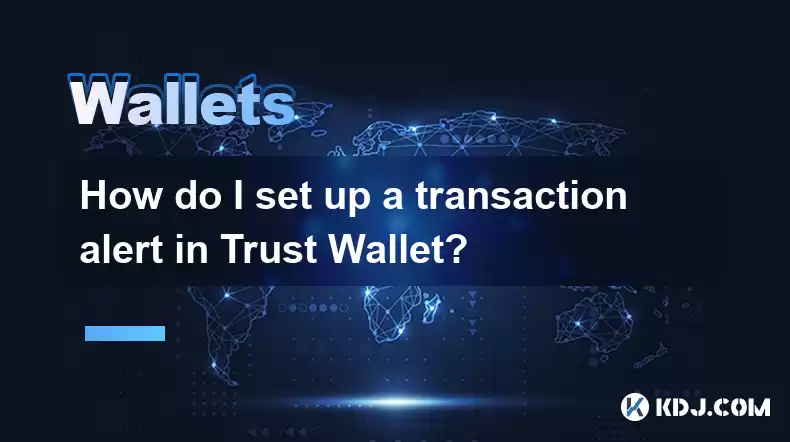-
 Bitcoin
Bitcoin $118900
-2.33% -
 Ethereum
Ethereum $4288
-0.13% -
 XRP
XRP $3.151
-3.21% -
 Tether USDt
Tether USDt $1.000
0.02% -
 BNB
BNB $809.5
-1.17% -
 Solana
Solana $175.7
-4.75% -
 USDC
USDC $0.0000
0.01% -
 Dogecoin
Dogecoin $0.2246
-5.75% -
 TRON
TRON $0.3473
2.19% -
 Cardano
Cardano $0.7809
-5.18% -
 Chainlink
Chainlink $21.38
-3.48% -
 Hyperliquid
Hyperliquid $43.29
-5.53% -
 Stellar
Stellar $0.4375
-3.21% -
 Sui
Sui $3.685
-6.68% -
 Bitcoin Cash
Bitcoin Cash $595.2
3.50% -
 Hedera
Hedera $0.2483
-6.60% -
 Ethena USDe
Ethena USDe $1.001
-0.01% -
 Avalanche
Avalanche $23.03
-5.28% -
 Litecoin
Litecoin $119.5
-5.02% -
 Toncoin
Toncoin $3.395
-0.07% -
 UNUS SED LEO
UNUS SED LEO $9.007
-1.19% -
 Shiba Inu
Shiba Inu $0.00001304
-5.44% -
 Uniswap
Uniswap $11.35
1.57% -
 Polkadot
Polkadot $3.898
-5.43% -
 Cronos
Cronos $0.1671
-0.16% -
 Ethena
Ethena $0.8121
-2.45% -
 Dai
Dai $1.000
0.02% -
 Bitget Token
Bitget Token $4.412
-1.73% -
 Monero
Monero $264.0
-0.64% -
 Pepe
Pepe $0.00001128
-8.12%
How do I set up a transaction alert in Trust Wallet?
Trust Wallet lacks built-in transaction alerts, but you can enable phone notifications, check the app regularly, use blockchain explorers, or cautiously use third-party services for monitoring.
Mar 30, 2025 at 07:07 pm

Setting Up Transaction Alerts in Trust Wallet
Trust Wallet, a popular mobile cryptocurrency wallet, doesn't offer built-in transaction alerts in the same way some centralized exchanges do. There's no single switch to flip for instant notifications on every transaction. However, you can achieve similar functionality through several methods, each with its own strengths and weaknesses. Let's explore them.
Method 1: Using Your Phone's Notification Settings
This is the simplest approach. Trust Wallet, like most apps, sends notifications when significant activity occurs within the wallet. This includes receiving or sending cryptocurrency. Ensure that Trust Wallet's notification permissions are enabled in your phone's settings. Go to your phone's settings, find the app permissions section, locate Trust Wallet, and make sure notifications are turned on. The level of detail in these notifications depends on your phone's OS and app version.
Method 2: Monitoring Your Wallet Directly
The most reliable way to stay informed is to regularly check your Trust Wallet app. Open the app and review your transaction history. This offers complete visibility into all your activities. While not an automated alert, this direct method ensures you won't miss anything. It's particularly helpful if you're concerned about security and want to verify every transaction immediately.
Method 3: Utilizing Blockchain Explorers
Each cryptocurrency operates on a specific blockchain. Blockchain explorers are websites that allow you to view all transactions on a given blockchain. You can find the transaction hash (ID) in your Trust Wallet transaction history and paste it into the relevant explorer (e.g., Etherscan for Ethereum, BscScan for Binance Smart Chain). This provides detailed information about the transaction, confirming its completion. While not an alert system, it's a valuable tool for verifying transactions.
Method 4: Third-Party Notification Services (Advanced)
Some third-party services offer cryptocurrency transaction monitoring, though this usually involves connecting your wallet address. Proceed with extreme caution when using such services, as connecting your wallet to external platforms introduces security risks. Thoroughly research any service before using it, ensuring its reputation for security and privacy is solid. Always prioritize reputable and well-reviewed platforms.
Method 5: Combining Methods for Comprehensive Monitoring
For the most effective monitoring, consider combining several of the above methods. Enable your phone's notification settings, regularly check your Trust Wallet, and use blockchain explorers to verify important transactions. This multi-layered approach provides a more comprehensive overview of your wallet activity, mitigating the limitations of each individual method.
Method 6: Setting up custom alerts for specific transactions (Not directly supported by Trust Wallet)
Trust Wallet itself does not offer a functionality to set up custom alerts for specific transactions or amounts. This kind of feature usually resides in third-party services or trading platforms that provide more advanced portfolio management tools. You cannot directly configure the app to notify you when a specific amount is sent or received.
Addressing Common Questions
Q: Can I set up email alerts for transactions in Trust Wallet?
A: No, Trust Wallet does not have a built-in email alert system for transactions. The notification methods described above are the primary ways to track your wallet activity.
Q: What if I miss a notification?
A: Regularly checking your Trust Wallet app is the most reliable way to ensure you don't miss any transactions. You can also use blockchain explorers to verify transactions independently.
Q: Are third-party notification services safe?
A: Using third-party services carries inherent security risks. Always research a service thoroughly before connecting your wallet. Look for established services with strong security reputations and positive user reviews. Consider the risks carefully before using such services.
Q: How often should I check my Trust Wallet?
A: The frequency depends on your trading activity. If you frequently send and receive cryptocurrency, checking more often is advisable. For less frequent activity, checking daily or every few days might suffice.
Q: Why doesn't Trust Wallet have built-in transaction alerts?
A: Trust Wallet prioritizes security and simplicity. Built-in alert systems can sometimes introduce vulnerabilities. The current notification system balances usability with security considerations.
Q: Can I get alerts for failed transactions?
A: Trust Wallet notifications will generally indicate if a transaction fails, though the specific details might depend on the nature of the failure and the blockchain's characteristics. Checking the transaction status on a blockchain explorer will give you more detailed information.
Q: What if my phone is turned off?
A: You will not receive notifications if your phone is turned off. Therefore, regularly checking your wallet directly is crucial for staying updated on your transactions.
Q: Can I customize the notification sounds in Trust Wallet?
A: The notification sounds are usually determined by your phone's operating system settings and are not directly customizable within Trust Wallet itself. You may be able to adjust the notification sounds for the app through your phone's settings.
Q: Are there any fees associated with using these notification methods?
A: No, there are no fees associated with using the methods described above for monitoring your Trust Wallet transactions. However, third-party services might have their own fees.
Q: Is it possible to set up an alert for a specific cryptocurrency in my Trust Wallet?
A: No, Trust Wallet doesn't allow for alerts based on specific cryptocurrencies. You'll receive notifications for all transactions involving any cryptocurrency stored in your wallet.
Disclaimer:info@kdj.com
The information provided is not trading advice. kdj.com does not assume any responsibility for any investments made based on the information provided in this article. Cryptocurrencies are highly volatile and it is highly recommended that you invest with caution after thorough research!
If you believe that the content used on this website infringes your copyright, please contact us immediately (info@kdj.com) and we will delete it promptly.
- Dogecoin, Presale, Surge: Riding the Meme Coin Wave
- 2025-08-12 11:10:12
- Dogecoin, Tron, and the ROI Reality Check: What's a Crypto Investor to Do?
- 2025-08-12 11:15:12
- Ethereum Layer-2 Scaling Competition Heats Up as ETH Breaks $4K
- 2025-08-12 10:30:12
- China Regulation, Stablecoins, and BNB Presale: Navigating the Crypto Landscape
- 2025-08-12 11:30:12
- Meme Coins, Investment, and Token Burns: What's Hot in 2025?
- 2025-08-12 10:30:12
- BlockDAG, Chainlink, Hedera: The Cryptos Enterprises are Eyeing
- 2025-08-12 09:30:12
Related knowledge

How to manage your portfolio in Exodus wallet
Aug 08,2025 at 10:07pm
Understanding the Exodus Wallet InterfaceThe Exodus wallet is a non-custodial cryptocurrency wallet that supports a wide range of digital assets. When...

How to reset your MetaMask password
Aug 08,2025 at 01:28pm
Understanding the MetaMask Password Reset ProcessMany users confuse the MetaMask password with the seed phrase or private key, but they serve differen...

How to buy Dogecoin on MetaMask
Aug 08,2025 at 03:42am
Understanding Dogecoin and MetaMask CompatibilityDogecoin (DOGE) is a popular meme-based cryptocurrency that operates on its own blockchain, originall...

How to switch between networks in Trust Wallet
Aug 09,2025 at 11:07am
Understanding Network Switching in Trust WalletSwitching between networks in Trust Wallet allows users to manage assets across different blockchains, ...

How to set up Face ID for MetaMask
Aug 12,2025 at 02:42am
Understanding Face ID and Its Role in MetaMask SecurityMetaMask is a widely used cryptocurrency wallet that allows users to interact with the Ethereum...

How to set up Face ID for MetaMask
Aug 11,2025 at 09:28am
Understanding Face ID and Its Role in MetaMask SecurityFace ID is a biometric authentication system developed by Apple that uses facial recognition to...

How to manage your portfolio in Exodus wallet
Aug 08,2025 at 10:07pm
Understanding the Exodus Wallet InterfaceThe Exodus wallet is a non-custodial cryptocurrency wallet that supports a wide range of digital assets. When...

How to reset your MetaMask password
Aug 08,2025 at 01:28pm
Understanding the MetaMask Password Reset ProcessMany users confuse the MetaMask password with the seed phrase or private key, but they serve differen...

How to buy Dogecoin on MetaMask
Aug 08,2025 at 03:42am
Understanding Dogecoin and MetaMask CompatibilityDogecoin (DOGE) is a popular meme-based cryptocurrency that operates on its own blockchain, originall...

How to switch between networks in Trust Wallet
Aug 09,2025 at 11:07am
Understanding Network Switching in Trust WalletSwitching between networks in Trust Wallet allows users to manage assets across different blockchains, ...

How to set up Face ID for MetaMask
Aug 12,2025 at 02:42am
Understanding Face ID and Its Role in MetaMask SecurityMetaMask is a widely used cryptocurrency wallet that allows users to interact with the Ethereum...

How to set up Face ID for MetaMask
Aug 11,2025 at 09:28am
Understanding Face ID and Its Role in MetaMask SecurityFace ID is a biometric authentication system developed by Apple that uses facial recognition to...
See all articles

























































































